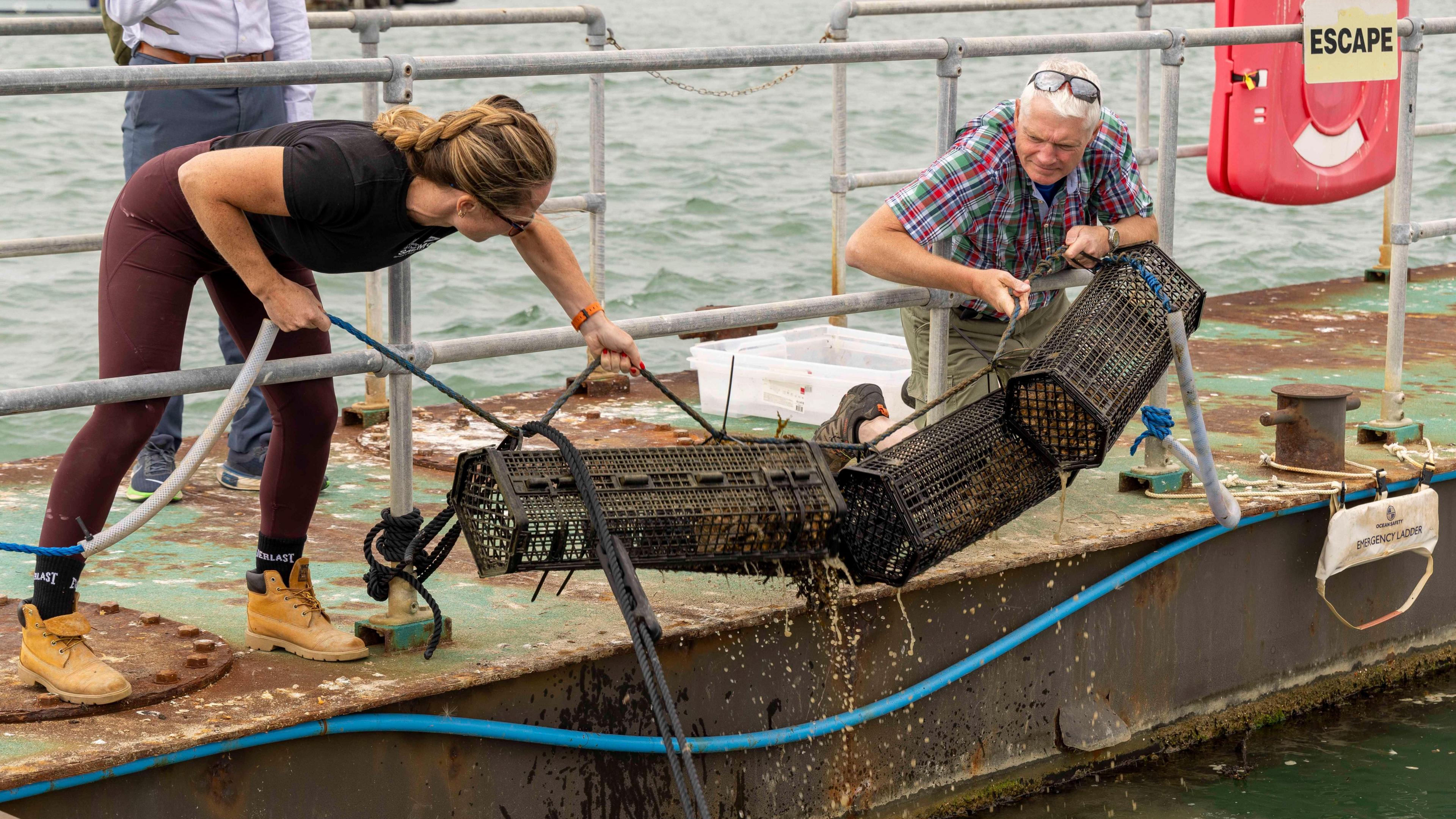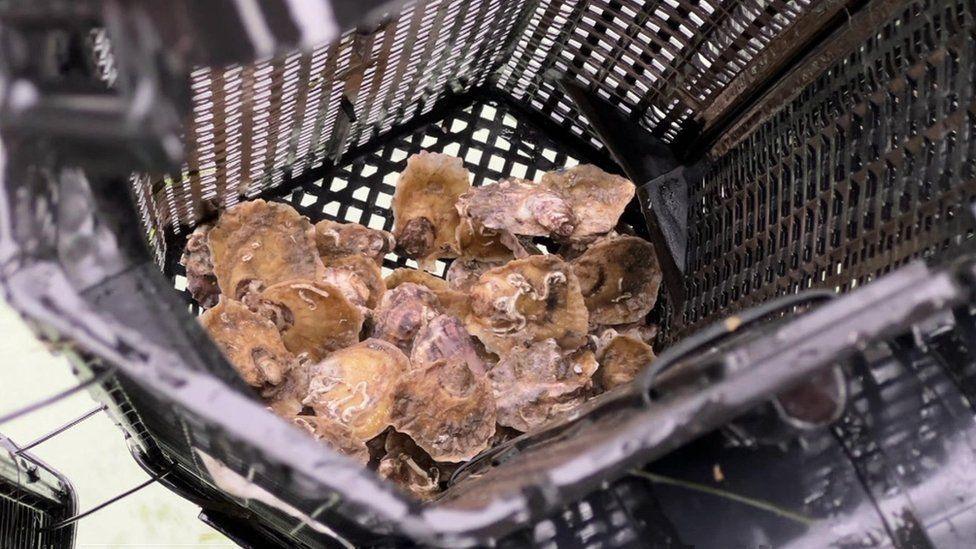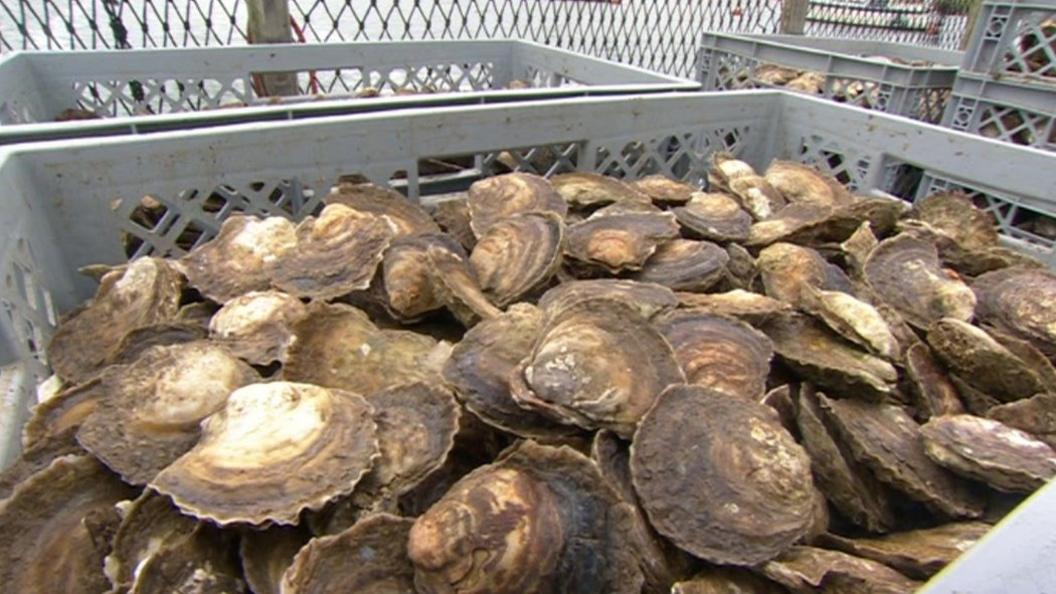Royal Navy base hosts oyster reintroduction efforts

The team check on the oysters every couple of weeks
- Published
The Royal Navy has teamed up with a maritime charity to reintroduce a rare type of oyster back into waters the species once thrived in - opposite one of its largest bases.
The Solent had been home to Europe's largest European flat oyster fishery in the 19th Century - but the species was effectively wiped out in the area by the 1980s.
Some 2,000 of the molluscs are now being grown on pontoons at the southern end of Whale Island in Portsmouth, home to the Royal Navy’s headquarters.
It is hoped that once grown, the oysters will be released into the Solent to re-establish the population, help clean the sea and enhance local marine biodiversity.
Since the peak in the mid-19th Century, numbers in the Solent have dropped by 95% as a result of overfishing and pollution.

Numbers of European flat oysters in the Solent collapsed as a result of overfishing and pollution.
Their niche is now occupied by the invasive Pacific oyster.
Rod Jones, the Royal Navy’s senior maritime environmental protection adviser, said: “The Navy has been operating in the Solent for centuries so it is only right that we should be involved in protecting its environment.”
The oysters and their crates are inspected every couple of weeks to make sure their growth is not being halted by algae, sea squirts and other marine life.
Part of the Blue Marine Foundation’s Solent Oyster Restoration initiative, the project is being managed by Defence Equipment & Support's Salvage and Marine Operations Wrecks team.
Harriet Rushton, who is managing the scheme, said: “These oysters are being grown for conservation, re-introducing a lost native keystone species in the Solent, which will enhance biodiversity and help clean the water."
The species naturally filters water, and remove carbon from the environment.
Once they reach adulthood, which will take up to 18 months, the oysters will be relocated to established artificial reefs in Langstone Harbour and the River Hamble.
Get in touch
Do you have a story BBC Hampshire & Isle of Wight should cover?
You can follow BBC Hampshire & Isle of Wight on Facebook, external, X (Twitter), external, or Instagram, external.
Related topics
- Published19 October 2023

- Published26 April 2023
